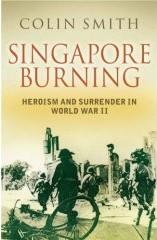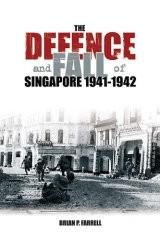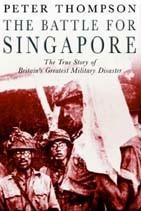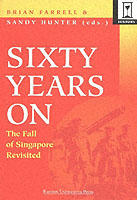A Defence most irresolute
In Richard Connaughton's 'Rising Sun and Tumbling Bear', it would appear that the most serious failing in the Russian army is that of defence that is irresolute. Time and again, during the campaign, the Russian army would mount a successful initial defence, inflicting heavy casualties upon their Japanese opponent only to withdraw later.
A vacillating Russian leadership which was unable to decide between sending reinforcements and launching an offensive ultimately chose withdrawal. The Japanese army was then able to assume a moral superiority that gave them an aura of invincibility.
The Malayan campaign of 1941-42 echoed the war of 1905. Likewise, the British and Commonwealth leadership mounted an irresolute defence, withdrawing frequently from position after position when faced with assaults from Japanese infantry supported by tanks. The Japanese 25th Army proved irresistable then.
In the case of the desperate defence at Wake Island and Bataan, outnumbered American defenders were tenacious, inflicting casualties on the Japanese and retarded the Japanese Army and Navy's offensive timetables. What was the difference? A leadership of higher quality? Better trained troops with greater morale?
On a related topic, at least three volumes on the defence of Singapore were released since 2004. They include Peter Thompson's 'Battle for Singapore', Colin Smith's 'Singapore Burning', Brian Farrell's 'The Defence and Fall of Singapore 1940-1942'.


The Farrell volume is an academic study while the other two are narratives.
Other related books released recently include '60 Years on: The Fall of Singapore Revisited', 'Buffalos over Singapore', 'Hurricanes over Singapore', 'The Guns of February', 'Bloody Shambles Volume 1'.


"Those who cavalierly reject the Theory of Evolution, as not adequately supported by facts, seem quite to forget that their own theory is supported by no facts at all." - Herbert Spencer
19 comments:
As we'd discussed, I'm not sure that the Russians' successful defence/immediate withdrawal was such a bad strategy. The problem is, as you mentioned, vacillation.
The battle for Port Arthur is a classic case of confusion and vacillation, from the naval aspects to the land battle. Port Arthur served very well as a manpower soak for the Russians, by smashing constant Japanese attacks.
On the other hand, you could point to this and say that it was an important lesson to the Russians to be used further on in the Great Patriotic War.
Haha....Brian Farrell was my teacher in uni.
Augustine
Wow! What course was that, Augustine?
Brian, you're right. The climatic battles were bloodbaths. The campaigns leading up to Port Arthur and Mukden (Shenyang) were a series of retreats and I wonder if the Japanese army had been held, what would happen? Would the Japanese have summoned their reserve divisions in Japan?
Well, I did War and Society (1945 - present day) which dealt with the 2 Vietnam wars, the Korean war and the Malayan Emergency.
I also did Total war (1815-1945) which focused on WWII although it did deal with the 30 years war, the French rev and WWI briefly.
Enjoyed myself thoroughly, Farrell is entertaining to listen to.
I don't think they had the strategic depth or the ability to lift these reserve divisions from Japan. Remember the Japanese all-or-nothing strategic direction...
I recall reading that they had a division or two in readiness. The Japanese division was apparently an 18 000-men affair and was not particularly simple with regards to strategic mobility.
However, I think troopships were available (mostly tramp steamers, destroyers and other types) but the problem was the supply lines which did retard the Japanese advance from time to time.
Lifting troops is the simple part, supplying them is the difficult... I can't think that adding more divisions to the siege would have made much difference.
I recall that they did shorten the lines by capturing a minor port town or two near Port Arthur, thus shortening their supply lines which originally stretched from Korea!
I'm still reading the campaign to capture Mukden and the surrounding areas. More on that later.
Augustine, how was the Total War course approached?
By the way, that book is in fact the book sitting in a container back to Singapore. One of the better primers on Russo-Japanese war.
You have read it then?
Indeed I have... it was interesting, though I can't remember exactly why I thought there was a flaw in it.
A flaw? Hmm..
What a small world to have two persons reading the same book on the same conflict which is not exactly the biggest.
I am at the point of the capture of Liaoyang. My comments in the blog entry are, of course, premature as they can only pertain to the mobile campaign preceding Liaoyang.
By the way, what's the deal with your new blog?
What do you mean, what's the deal? It's just a blog, which I think will eventually replace my mass emails.
That's great. Earlier, I think I did request that you do that. After all, your mass emails from all those years did fit a blog format. Do you mind if I link you?
Go ahead, I'll do the same when I get back and post.
Post a Comment